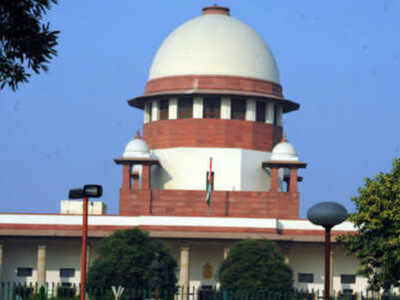
NEW DELHI: Hearing a petition against the proposed coastal road, a Supreme Court bench of Chief Justice S A Bobde and Justices A S Bopanna and V Ramasubramanian told BMC's counsel, senior advocate Darius Khambatta, "Your client (BMC) likes to jump the gun. We did not stay the HC order directing environment impact assessment. We prevented you from doing any reclamation except the land required for construction of the road. There can be no development other than the road. If you are reclaiming more land than required for the road, then you are overreaching our orders. You cannot do it without taking permission from us."
Khambatta said the committee, which grants EIA clearance, gave a go-ahead for the project. The bench asked, "Are you saying that the factors considered for granting EIA clearance is the same as the clearance given by the committee?" Appearing for project proponent L&T, senior advocate Harish Salve said, "The norms were even more rigorous than the EIA clearance requirements." The bench asked, "Then what is the problem for getting the requisite clearance under the Environment Protection Act?
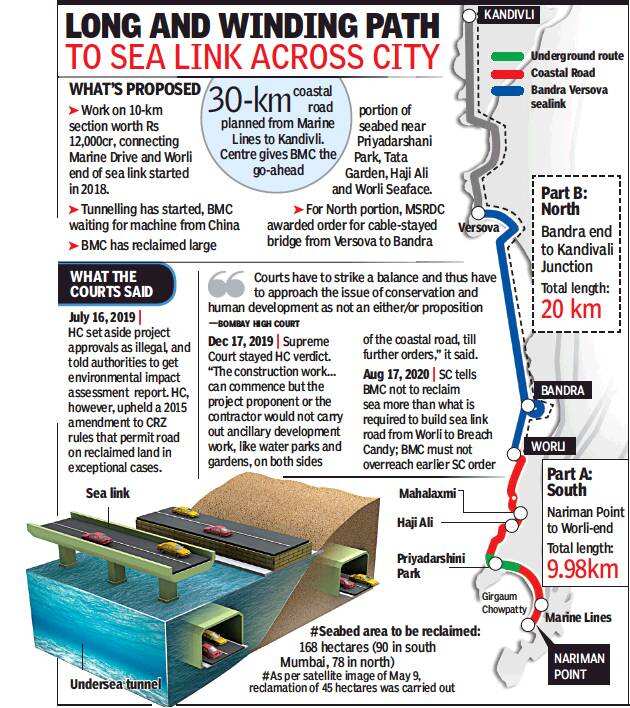
When both Khambatta and Salve said reclamation was going on as per the SC's December 17 order, the bench again told them, "Any area other than what is required for the road cannot be reclaimed. We want an affidavit from a senior officer of BMC along with an area map clearly delineating the area already reclaimed and the area required for the road." The matter was posted for hearing on Sept 4.
On December 17, the SC okayed the coastal road project by staying a Bombay High Court order which stalled it on grounds of lack of environmental and wildlife clearances. But it said while land reclamation and road building could resume, no development — like water parks and gardens — could be carried out till further orders.
The Rs 14,000 crore project, comprising 10 km of bridges on stilts, a tunnel, and road segments between Marine Drive and Worli, is the first phase of a larger plan for an uninterrupted 30-km road between south Mumbai and Kandivli to cut travel time between the city’s two ends.
On July 16, the HC stalled the project saying work could not go on without clearances under the Environment Impact Assessment notification and the Wildlife Protection Act, 1972, even though it conceded that the “extent of appraisal for environment clearance under CRZ 2011 is more exhaustive than the appraisal for environment clearance under EIA notification”. The HC quashed the CRZ clearance for the project after it was challenged in a bunch of PILs.
The BMC in its appeal had said the project’s completion would ease traffic congestion, ensuring drastic reduction in air pollution, 34% fuel saving a day, and reduction of 1,826 tonnes of carbon dioxide per year, improving public health and cutting commuting time.
Giving historical perspective of Mumbai’s development through repeated reclamation projects, BMC had said, “The proposal for construction of a coastal road has been part of the development plan for Mumbai since 1967. The construction of a coastal road on reclaimed land will be cheaper than construction of a sea link along the same route.” For the project, BMC had said it would require over 90 hectares of reclamation, which the HC had said could harm corals.
Khambatta said the committee, which grants EIA clearance, gave a go-ahead for the project. The bench asked, "Are you saying that the factors considered for granting EIA clearance is the same as the clearance given by the committee?" Appearing for project proponent L&T, senior advocate Harish Salve said, "The norms were even more rigorous than the EIA clearance requirements." The bench asked, "Then what is the problem for getting the requisite clearance under the Environment Protection Act?

When both Khambatta and Salve said reclamation was going on as per the SC's December 17 order, the bench again told them, "Any area other than what is required for the road cannot be reclaimed. We want an affidavit from a senior officer of BMC along with an area map clearly delineating the area already reclaimed and the area required for the road." The matter was posted for hearing on Sept 4.
On December 17, the SC okayed the coastal road project by staying a Bombay High Court order which stalled it on grounds of lack of environmental and wildlife clearances. But it said while land reclamation and road building could resume, no development — like water parks and gardens — could be carried out till further orders.
The Rs 14,000 crore project, comprising 10 km of bridges on stilts, a tunnel, and road segments between Marine Drive and Worli, is the first phase of a larger plan for an uninterrupted 30-km road between south Mumbai and Kandivli to cut travel time between the city’s two ends.
On July 16, the HC stalled the project saying work could not go on without clearances under the Environment Impact Assessment notification and the Wildlife Protection Act, 1972, even though it conceded that the “extent of appraisal for environment clearance under CRZ 2011 is more exhaustive than the appraisal for environment clearance under EIA notification”. The HC quashed the CRZ clearance for the project after it was challenged in a bunch of PILs.
The BMC in its appeal had said the project’s completion would ease traffic congestion, ensuring drastic reduction in air pollution, 34% fuel saving a day, and reduction of 1,826 tonnes of carbon dioxide per year, improving public health and cutting commuting time.
Giving historical perspective of Mumbai’s development through repeated reclamation projects, BMC had said, “The proposal for construction of a coastal road has been part of the development plan for Mumbai since 1967. The construction of a coastal road on reclaimed land will be cheaper than construction of a sea link along the same route.” For the project, BMC had said it would require over 90 hectares of reclamation, which the HC had said could harm corals.

Coronavirus outbreak
Trending Topics
LATEST VIDEOS
City
 Self-styled godman Nithyananda sets up a bank called Reserve Bank of Kailasa
Self-styled godman Nithyananda sets up a bank called Reserve Bank of Kailasa 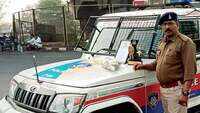 Gujarat: Cop who never misses covering dead with shrouds spending money from his own pocket
Gujarat: Cop who never misses covering dead with shrouds spending money from his own pocket 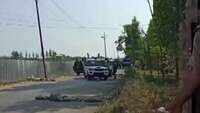 J&K: Top LeT commander Sajjad alias Haider killed in Baramulla encounter
J&K: Top LeT commander Sajjad alias Haider killed in Baramulla encounter 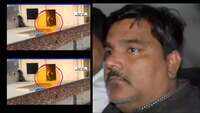 Delhi riots case: Enforcement Directorate grills suspended AAP councillor Tahir Hussain
Delhi riots case: Enforcement Directorate grills suspended AAP councillor Tahir Hussain
More from TOI
Navbharat Times
Featured Today in Travel
Get the app





